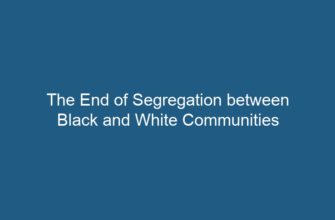Abraham Lincoln, one of the most revered presidents in American history, led the United States through its greatest internal crisis, the Civil War. His leadership, determination, and belief in equality transformed the nation and forever shaped the course of American history. To fully understand the impact of Lincoln’s presidency, it is crucial to delve into the key events that shaped his life. This article explores the formative experiences and significant milestones that influenced Lincoln’s journey to becoming a legendary figure in American politics.
- 1. Early Life and Background
- 1.1 Childhood in Kentucky
- 1.2 Education and Self-Development
- 2. Early Political Career
- 2.1 Illinois State Legislature
- 2.2 United States Congress
- Abraham Lincoln: Preserving The Union | Full Documentary | Biography
- Abraham Lincoln – U.S. President | Mini Bio | BIO
- 3. The Road to the Presidency
- 3.1 Lincoln-Douglas Debates
- 3.2 Emancipation Proclamation
- 3.3 Gettysburg Address
- 4. The Civil War and Legacy
- 4.1 Preservation of the Union
- 4.2 Assassination and Mourning
- 4.3 Legacy and Impact
- Conclusion
1. Early Life and Background
Abraham Lincoln was born on February 12, 1809, in a log cabin in Hardin County, Kentucky. His parents, Thomas and Nancy Lincoln, were humble farmers. Lincoln’s upbringing was marked by poverty and limited education, but he had a thirst for knowledge. Despite the challenges, Lincoln’s early years instilled in him a strong work ethic and a deep sense of justice.
1.1 Childhood in Kentucky
Lincoln’s childhood in Kentucky was marked by hardship. His family moved to Indiana when he was seven years old, seeking better opportunities. The rugged frontier life and the loss of his mother in 1818 profoundly impacted his upbringing. Lincoln’s experiences in Kentucky laid the foundation for his empathy and understanding of the struggles faced by ordinary Americans.
1.2 Education and Self-Development
As a child, Lincoln had limited access to formal education. However, he was an avid reader and taught himself various subjects, including law and politics. His insatiable curiosity and determination to improve his knowledge played a vital role in his later career.
2. Early Political Career
Lincoln’s foray into politics began in 1832 when he ran for a seat in the Illinois General Assembly. Although he lost the election, it marked the beginning of his political aspirations. Over the next two decades, Lincoln’s political career gained momentum, and he became a prominent figure in Illinois politics.
2.1 Illinois State Legislature
In 1834, Lincoln successfully won a seat in the Illinois State Legislature as a member of the Whig Party. During his tenure, he advocated for infrastructure development, education, and the abolition of slavery in the District of Columbia. Lincoln’s time in the state legislature honed his political skills and solidified his commitment to equality and justice.
2.2 United States Congress
In 1846, Lincoln was elected to the United States House of Representatives, representing Illinois’ Seventh Congressional District. His tenure in Congress coincided with the highly contentious debate over the expansion of slavery. Lincoln, known for his moral opposition to slavery, played a crucial role in shaping the national discourse on the issue.
Abraham Lincoln: Preserving The Union | Full Documentary | Biography
Abraham Lincoln – U.S. President | Mini Bio | BIO
3. The Road to the Presidency
Lincoln’s journey to the presidency was marked by numerous setbacks and challenges. However, his unwavering dedication to the principles of liberty and equality propelled him forward and eventually led him to the highest office in the land.
3.1 Lincoln-Douglas Debates
One of the defining moments in Lincoln’s political career was the series of debates with Stephen A. Douglas, his Democratic opponent, during the 1858 Illinois senatorial campaign. The debates centered around the issue of slavery, with Lincoln firmly advocating for its containment and eventual abolition. Although he lost the senatorial election, the debates brought Lincoln national attention and elevated his status in the Republican Party.
3.2 Emancipation Proclamation
On January 1, 1863, President Lincoln issued the Emancipation Proclamation, a landmark executive order that declared slaves in Confederate territory to be free. The proclamation not only transformed the purpose of the Civil War but also laid the groundwork for the eventual abolition of slavery in the United States.
3.3 Gettysburg Address
On November 19, 1863, Lincoln delivered the Gettysburg Address, a short but powerful speech that defined the purpose of the Civil War and the nation’s commitment to equality and democracy. The address is considered one of the most significant speeches in American history and solidified Lincoln’s status as a visionary leader.
4. The Civil War and Legacy
Lincoln’s presidency was defined by the Civil War, a grueling conflict that threatened to tear the nation apart. His leadership during this tumultuous period showcased his ability to navigate through challenges and make difficult decisions.
4.1 Preservation of the Union
Throughout the Civil War, Lincoln’s primary objective was to preserve the Union at all costs. His steadfast determination to reunite the divided states guided his policies and strategies, ultimately leading to victory for the Union forces.
4.2 Assassination and Mourning
Tragically, Lincoln’s presidency was cut short when he was assassinated on April 14, 1865, by John Wilkes Booth. The nation mourned the loss of a leader who had guided them through the most challenging period in American history.
4.3 Legacy and Impact
Abraham Lincoln’s legacy is enduring and far-reaching. His leadership during the Civil War and his unwavering commitment to equality and justice transformed the nation. Lincoln’s Emancipation Proclamation and the passage of the Thirteenth Amendment paved the way for the abolition of slavery in the United States. His vision of a united and equal America continues to inspire generations.
Conclusion
Abraham Lincoln’s life was marked by hardship, perseverance, and an unwavering commitment to justice. From his humble beginnings to his presidency, Lincoln’s journey exemplifies the power of determination and the impact one individual can have on a nation. The key events in his life shaped his character and solidified his place in American history as one of the greatest presidents to ever hold office.










